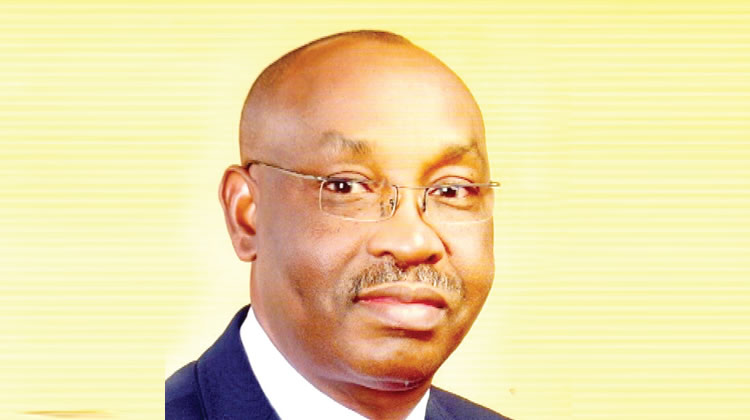
The Executive Secretary, Nigeria Extractive Industries Transparency Initiative, Orji Ogbonnaya-Orji, tells OKECHUKWU NNODIM how NEITI audit reports have revealed the trillions of naira in unpaid taxes and royalties by oil, gas and mining companies, among other industry issues
When are we expecting the 2021 audit report of the oil and gas sector and what is going to be its scope?
The 2021 (oil and gas sector) report will be concluded and published before the end of this year. The scope of the report is to establish what companies paid to the government within the given year of 2021 and how much of that money the government received. We equally want to establish if those companies paid what they should pay and if the government actually received what it should receive as well as the variances, if any. We want to establish the quantity of crude that was produced, how much of that could be accounted for and how much was stolen. We should establish the amount that was exported, reserved for local consumption and how this was managed. We want to establish the issues around our joint venture status and how we responded to the JV cash call management issues. We are looking at how we also managed the various funding arrangements such as the production sharing contracts. Also how did the recent marginal fields awards that took place go? Was Nigeria in good standing in terms of revenue collection?
We equally want to know, for instance, the taxes paid and how much of them were actually remitted. And again, what was the basis for the computation of the rates at which we sold our equity crude? There is a lot that the audit is about. We are also looking at beneficial owners, who own what within some of these companies. We are looking at the transparency of the contracts that underpinned all the transactions. Process issues, fiscal issues in terms of finance and then physical issues in terms of quantity of crude produced, exported and consumed will also be looked at. We also want to know how we managed our subsidy regime within the period.
Is it increasing or coming down? And another issue is the liabilities of companies to the government. Why would it be difficult for companies operating in Nigeria to pay their taxes? From our last report in 2019, we unveiled 77 companies that were indebted to the country to the tune of $6.8bn. When we published our 2020 report, the amount fell by about 50 per cent and about 51 companies were liable. Our 2021 report needs to explain to us clearly whether all the companies have complied.
If the companies have not complied, what will be your next line of action?
We did give the impression that if by the 2021 report companies are still in default of taxes and remittances to the government, then it is no longer tax evasion but will become an economic crime. There are agencies that we partner with that may not have hesitation than to move in. Let me make it very clear, we want companies to do business in Nigeria and what we are doing is to widen that opportunity and engagement.
But one of the responsible and civic duties of a company in any jurisdiction is to pay taxes as and when due. So, we need companies to comply with that directive. But we can’t speak in vague terms; we need to speak on the basis of our report. So, the 2021 report needs to give us an update on that and a lot more, because it is going to be a comprehensive report. This is why we want to get the report out before the end of this year, as we are about to commence procurement for the 2022 report.
How prepared is Nigeria for the global Extractive Industries Transparency Initiative forthcoming validation exercise?
I’m happy you referred to Nigeria, because the mistake we normally make sometimes is to think that the validation is about NEITI. No, rather, NEITI is just the agency, but you got it correctly, it is Nigeria that is under validation and it is a global assessment exercise that measures the level of implementation and impact of EITI in member countries. This year, Nigeria will be due for validation and it is done every three years.
What it requires is that a team from the global headquarters in Oslo will be arriving in Nigeria to evaluate what we have done within the three-year period. The evaluation will be in three major areas which include assessing the level of compliance to EITI requirements in the reforms that are going on in the oil, gas and mining sectors.
They will also look at how we have engaged with civil society and citizens. They will equally look at the leadership of the National Stakeholders Working Group, among many others.
I have no doubt that as a country, we are getting ready. It is NEITI’s responsibility, working with multi-stakeholders, to achieve this. We expect the EITI team to be here for the exercise in January 2023. But their preliminary visit to Nigeria will be in November to assess the level of our preparation. We are engaging with every necessary stakeholder to make sure that our country comes out tops, because it is a national programme.
Did any of the tax defaulting companies identified in your reports deny being indebted to the government?
We had a press conference and we said we were going to disclose the names of the 77 companies that were owing. As soon as that happened, many of them had to do what was necessary because none of the companies wanted to be named as a tax defaulter for it can be embarrassing to them internationally. Outside the country, if you don’t pay tax you’ll go to jail. It is a very serious criminal offence and nobody wants to be identified with such. You can’t mention any of these companies that are guarding their reputation as one that doesn’t pay tax. Many of them kept calling us to tell us that they were tidying up their papers and they went and paid the taxes to the required agencies.
Now, we didn’t know that the National Assembly discussed it at a plenary session and set up a committee and came to us to request that we show them proof that this kind of money is lying fallow and uncollected. We appeared at the National Assembly and went with our team to work with the secretariat. We sat and watched to see any company that would deny that it was not what it owed. We have the facts.
By the time I made my presentations, the companies started saying, “oh, we just paid last month; we held a meeting; we are going to pay, etc.” Nobody, not one company, denied or contradicted us in terms of their indebtedness. And we discovered that from the 2019 report when 77 companies owed.
It came down to 51 companies in 2020 and we are expecting that in 2021 there should be no company owing. The payments are made to the Federal Inland Revenue Service and the Nigeria Upstream Petroleum Regulatory Commission. What some of us don’t know is that the inability of the government to meet basic needs is because sometimes the government may have money but it doesn’t know where the money is kept.
Apart from the oil and gas sector, are there other sectors you are auditing?
We have also moved into the solid minerals sector because there are companies that owe the government taxes and royalties in that industry. As we speak now, there is a committee between NEITI and the Revenue Mobilisation, Allocation and Fiscal Commission going to those companies one by one for that money to be remitted. That is in the solid minerals sector.
I am yet to get what has come in, that is from solid minerals. But we have data on who owes what and there are about 2,000 companies in that category. We also have how much they owe.
So, it is often when you are looking for money that you will remember the people who owe you. And at times, it is your duty to go and say, “my friend, why haven’t you been able to pay me?” But if somebody owes you and you don’t remember, the person will believe that you don’t need the money. And our concern is that our country is going and borrowing. Therefore, our focus is to channel the report of NEITI essentially for revenue mobilisation and generation for Nigeria.





